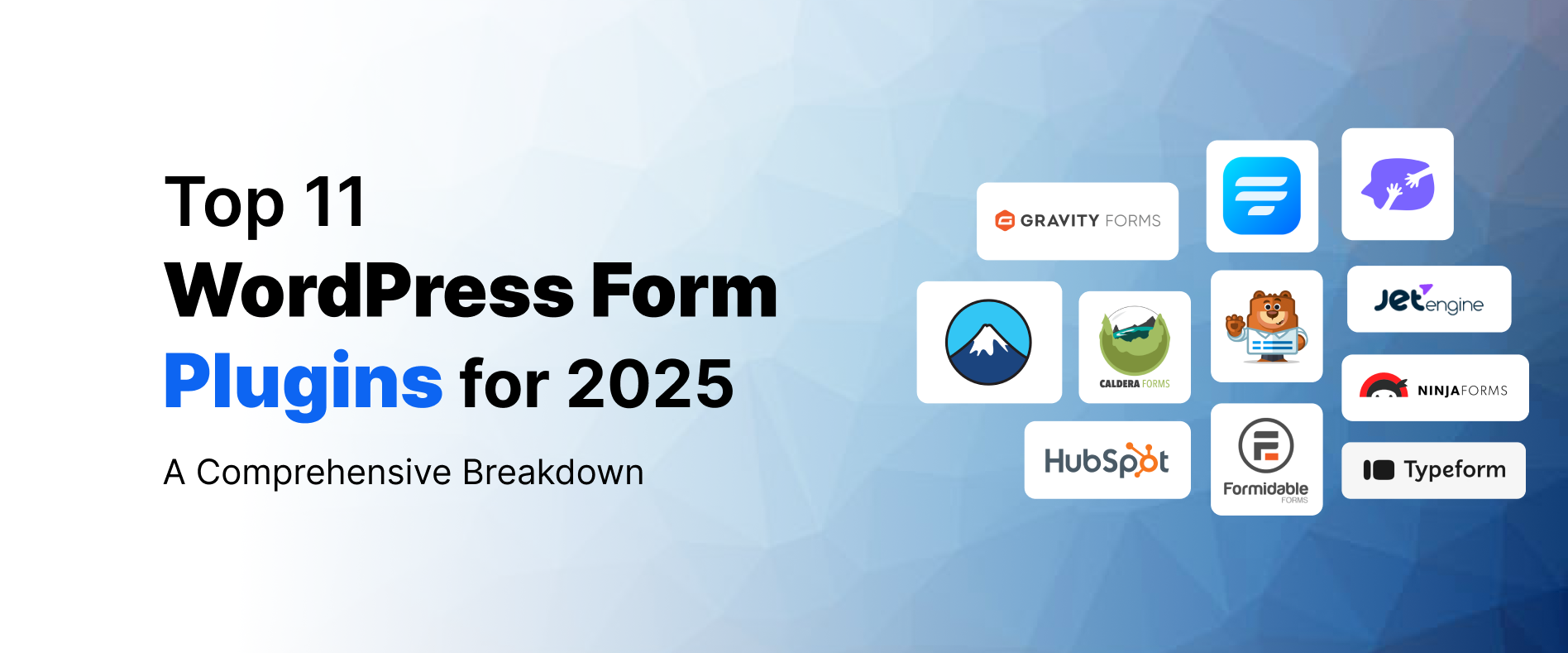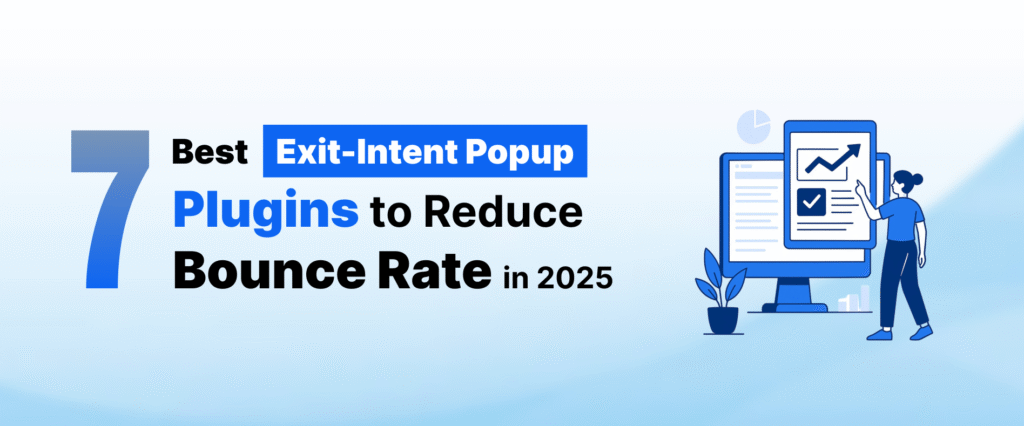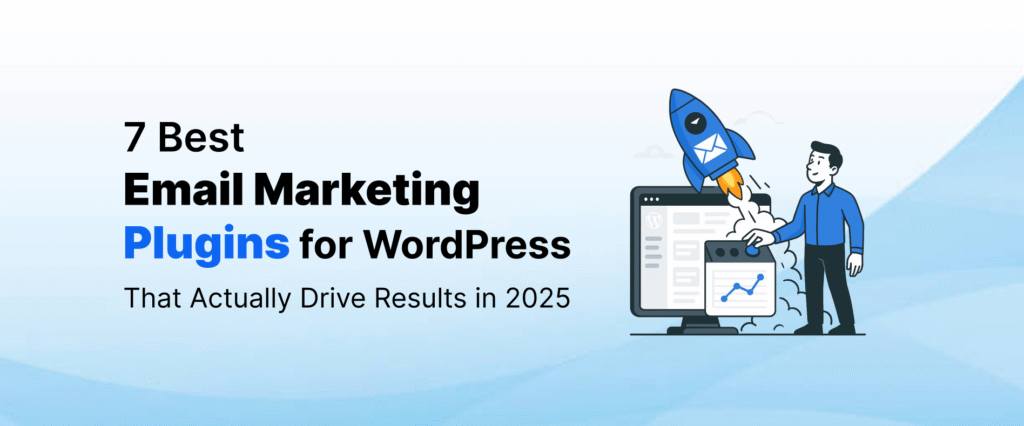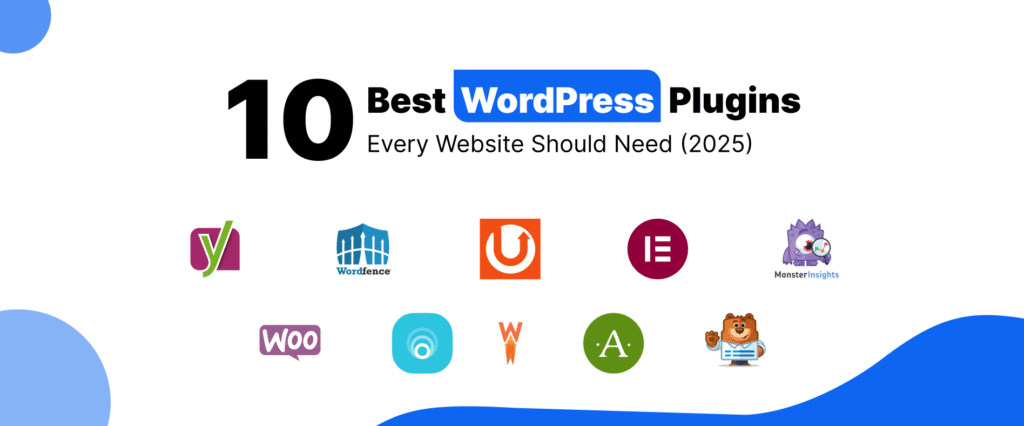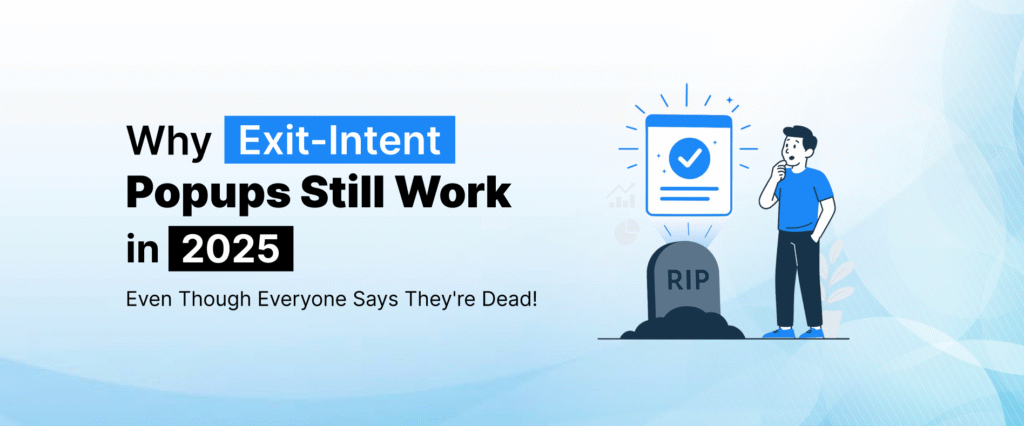Introduction
WordPress powers over 42.8% of the web, but its real power comes from its massive plugin ecosystem. With over 60,000 options available, the challenge isn’t finding a plugin — it’s choosing the right ones without slowing down your site.
In this guide, we’ve curated the 10 essential WordPress plugins for 2026 that every website needs. Whether you run a blog, business site, or e-commerce store, these tools cover the five pillars of a successful WordPress website: SEO, Security, Speed, Backups, and Lead Generation (including powerful tools like YS LeadGen).
Stop guessing and start optimizing. This is your practical toolkit for building a faster, safer, and more profitable WordPress website.
Common Questions About Essential WordPress Plugins
What are the most essential WordPress plugins?
Every WordPress website needs plugins for SEO, security, speed optimization, backups, analytics, and forms.
Is it safe to use many plugins on WordPress?
Yes. As long as plugins are well-coded, regularly updated, and not overlapping in functionality.
How many plugins should a WordPress site have?
Most WordPress sites perform best with 15–25 essential plugins.
Do plugins slow down WordPress?
No. Performance issues usually come from poorly coded or unnecessary plugins.
Are free WordPress plugins good enough?
Free plugins are sufficient for basic needs, while premium plugins offer advanced features and better support.
What to Look for in a WordPress Plugin
Before installing any plugin, consider these five critical factors:
1. Performance & Speed Impact
- Does the plugin slow down your site?
- Check performance benchmarks and user reviews.
2. Active Installations & Ratings
- A plugin with 1M+ active installs and 4+ star ratings is usually reliable.
3. Regular Updates & Developer Support
- Avoid plugins that haven’t been updated in over 6 months.
- Check if the developer responds to support requests.
4. Compatibility with Your WordPress Version
- Ensure the plugin works with the latest WordPress release.
5. SEO & Mobile-Friendliness
- Plugins should not harm Core Web Vitals (Google’s ranking factor).
- Now, let’s explore the 10 must-have WordPress plugins for every website.
Types of WordPress Plugins Every Website Uses
WordPress plugins generally fall into these core categories:
- SEO plugins for search visibility
- Security plugins for malware and hacking protection
- Performance plugins for speed and caching
- Backup plugins for disaster recovery
- Page builders for design flexibility
- Analytics plugins for tracking visitor behavior
- Form and lead generation plugins
A well-optimized WordPress website typically uses at least one plugin from each category.
1. Yoast SEO (Best for SEO Optimization)
Quick Summary: Yoast SEO helps optimize WordPress content for search engines and readability.

Why You Need It:
SEO is non-negotiable if you want traffic from Google. Yoast SEO is the #1 plugin for optimizing your content and improving search rankings.
Key Features:
✔ Real-time SEO analysis – Checks keyword usage, readability, and meta tags.
✔ XML sitemap generator – Helps Google crawl your site efficiently.
✔ Schema markup integration – Enhances rich snippets in search results.
✔ Internal linking suggestions – Improves site structure and rankings.
Best For:
- Bloggers
- Business websites
- Anyone who wants free organic traffic
2. Wordfence Security (Best for Website Security)
Quick Summary: Wordfence protects WordPress websites from hacking, malware, and brute-force attacks.
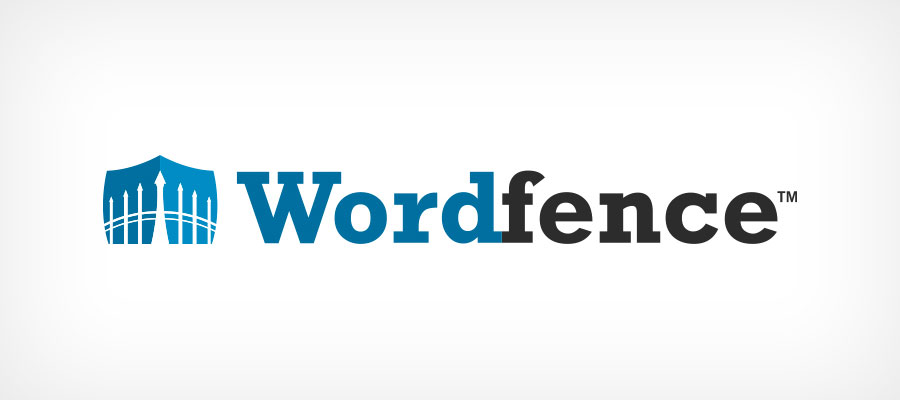
Why You Need It:
WordPress sites face constant security threats according to WordPress security studies. Wordfence Security provides a firewall, malware scanner, and login protection to keep your site safe.
Key Features:
✔ Web Application Firewall (WAF) – Blocks malicious traffic before it reaches your site.
✔ Malware scanner – Detects viruses, backdoors, and suspicious code.
✔ Login security – Limits login attempts to prevent brute force attacks.
✔ Real-time threat defense – Updates firewall rules automatically.
Best For:
- Every WordPress site (security is essential!)
3. UpdraftPlus (Best for Backups)
Quick Summary: UpdraftPlus automates WordPress backups and enables easy site restoration.

Why You Need It:
If your site crashes or gets hacked, a backup plugin can save you. UpdraftPlus automates backups and stores them on Google Drive, Dropbox, or Amazon S3.
Key Features:
✔ Schedule automatic backups (daily, weekly, or monthly).
✔ One-click restoration – Recover your site in minutes.
✔ Cloud storage integration – Securely stores backups off-site.
✔ Database & file backups – Full or partial backups available.
Best For:
- Anyone who can’t afford to lose their website data.
4. WP Rocket (Best for Speed Optimization)
Quick Summary: WP Rocket improves WordPress speed using caching and performance optimization.

Why You Need It:
A slow website kills conversions and SEO rankings, as shown in Google page speed research. WP Rocket is the easiest caching plugin to instantly speed up WordPress.
Key Features:
✔ Page caching – Reduces server load for faster loading.
✔ Lazy loading – Delays off-screen images to improve speed.
✔ Database optimization – Cleans up unnecessary data.
✔ CDN integration – Works with Cloudflare, BunnyCDN, etc.
Best For:
- Sites that want instant speed boosts without technical hassle.
Download WP Rocket (Premium Plugin)
5. Elementor (Best for Page Building)
Quick Summary: Elementor allows users to build custom WordPress pages using drag-and-drop editing.

Why You Need It:
Want a professional-looking website without coding? Elementor is the #1 drag-and-drop page builder for WordPress.
Key Features:
✔ Live front-end editing – See changes in real time.
✔ 300+ templates – Ready-made designs for any niche.
✔ Mobile-responsive controls – Optimize for every device.
✔ WooCommerce integration – Build stunning product pages.
Best For:
- Beginners and pros who want full design control.
6. MonsterInsights (Best for Google Analytics)
Quick Summary: MonsterInsights connects Google Analytics to WordPress with easy dashboard reports.

Why You Need It:
Understanding your visitors is key to growth. MonsterInsights connects Google Analytics to WordPress in one click.
Key Features:
✔ Real-time stats – See who’s on your site right now.
✔ Traffic sources – Track where visitors come from.
✔ E-commerce tracking – Monitor WooCommerce sales.
✔ Easy dashboard reports – No coding required.
Best For:
- Bloggers, marketers, and online stores needing data insights.
7. WooCommerce (Best for E-Commerce)
Quick Summary: WooCommerce turns WordPress websites into fully functional online stores.

Why You Need It:
If you sell products online, WooCommerce turns WordPress into a powerful online store.
Key Features:
✔ Product management – Add physical/digital products easily.
✔ Payment gateways – Supports PayPal, Stripe, and more.
✔ Shipping & tax options – Set rates based on location.
✔ Extensions for scalability – Subscriptions, memberships, etc.
Best For:
- Anyone running an online store.
8. Smush (Best for Image Optimization)
Quick Summary: Smush optimizes images to improve website speed without quality loss.

Why You Need It:
Large images slow down websites. Smush compresses and optimizes images without losing quality.
Key Features:
✔ Bulk image compression – Optimize 50+ images at once.
✔ Lazy loading – Images load only when visible.
✔ WebP conversion – Next-gen image format for faster speeds.
✔ No size limits – Unlike many free alternatives.
Best For:
- Sites with lots of images (photography, blogs, portfolios).
9. Akismet Anti-Spam (Best for Spam Protection)
Quick Summary: Akismet automatically blocks spam comments and form submissions.

Why You Need It:
Spam comments and form submissions are annoying. Akismet automatically filters spam so you don’t have to.
Key Features:
✔ Blocks spam comments – Uses AI to detect fake submissions.
✔ Works with contact forms – Protects CF7, WPForms, etc.
✔ No captchas needed – Reduces friction for real users.
Best For:
- Any site with comments or contact forms.
10. WPForms (Best for Contact Forms)
Quick Summary: WPForms creates beginner-friendly contact and lead capture forms.
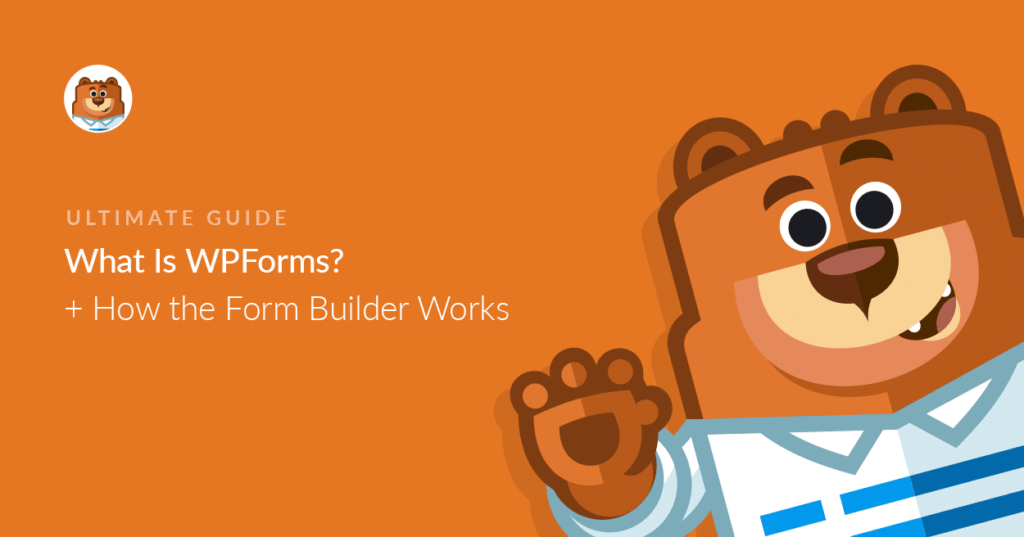
Why You Need It:
Every website needs a contact form. WPForms is the easiest drag-and-drop form builder.
Alternative option: If you want to combine contact forms with high-converting popups and lead capture, YS LeadGen is a WordPress-native solution built for exit-intent, scroll-based, and timed campaigns
Key Features:
✔ Pre-built templates – Contact forms, surveys, payment forms.
✔ Spam protection – Built-in anti-spam features.
✔ Conversational forms – Improve user experience.
✔ Integrations – Works with PayPal, Mailchimp, Zapier.
Best For:
- Businesses, freelancers, and bloggers needing lead capture forms.
Bonus: 5 More Essential Plugins
While the above plugins are absolute must-haves, these five are also worth considering:
1. Broken Link Checker
- Why? Finds and fixes broken links (good for SEO).
- Download Here
2. Redirection
- Why? Manages 301 redirects when you change URLs.
- Download Here
3. Tidio Live Chat
- Why? Adds live chat support to engage visitors.
- Download Here
4. OptinMonster
- Why? Converts visitors into email subscribers.
- Download Here
5. Rank Math (Alternative to Yoast SEO)
- Why? Advanced SEO features with a cleaner interface.
- Download Here
How to Install WordPress Plugins (Step-by-Step Guide)
Installing plugins is super easy. Here’s how:
- Go to WordPress Dashboard → Plugins → Add New
- Search for the plugin by name (e.g., “Yoast SEO”)
- Click “Install Now” and then “Activate”
- Configure settings as needed
💡 Pro Tip:
- Don’t install more than 20-25 plugins (too many can slow down your site).
- Delete unused plugins to reduce security risks.
Key Takeaways: Best WordPress Plugins for Every Website
- SEO, security, and speed plugins are non-negotiable
- Performance plugins directly impact rankings and conversions
- Backup plugins protect against data loss
- Page builders simplify website design
- Too many plugins can hurt performance if poorly chosen
- Always use updated and well-reviewed plugins
Final Thoughts
Choosing the right WordPress plugins can make or break your website. The 10 plugins above cover the essentials for security, speed, SEO, and functionality.
Action Steps:
- Install Yoast SEO (for better rankings).
- Set up Wordfence (to block hackers).
- Enable UpdraftPlus (automated backups).
Once these are in place, explore other plugins based on your needs (e.g., WooCommerce for stores, Elementor for design).
Frequently Asked Questions About WordPress Plugins
Can I use both free and premium plugins?
Yes. Many websites combine free plugins with premium ones for advanced features.
How often should plugins be updated?
Plugins should be updated whenever stable updates are released.
Can plugins affect SEO?
Yes. Poorly coded plugins can negatively impact site speed and SEO.
Should I delete unused plugins?
Yes. Unused plugins increase security risks and should be removed.

